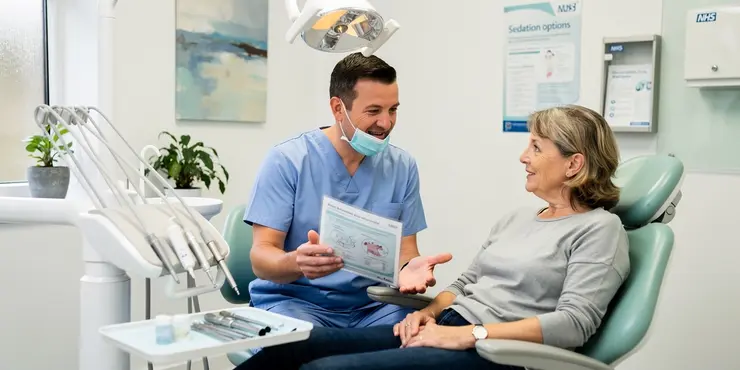
Find Help
More Items From Ergsy search
-
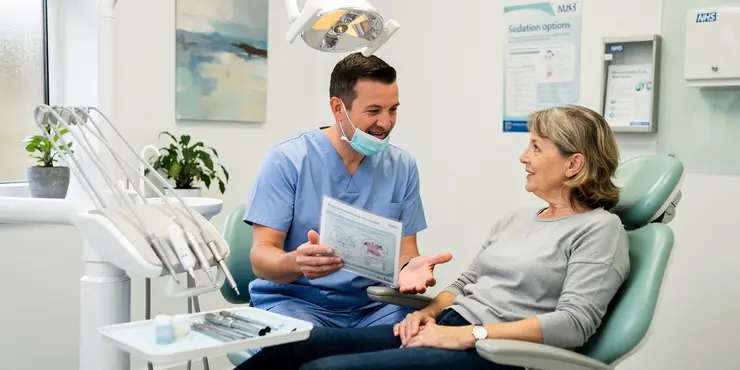
Is sedation available during NHS dental treatments?
Relevance: 100%
-
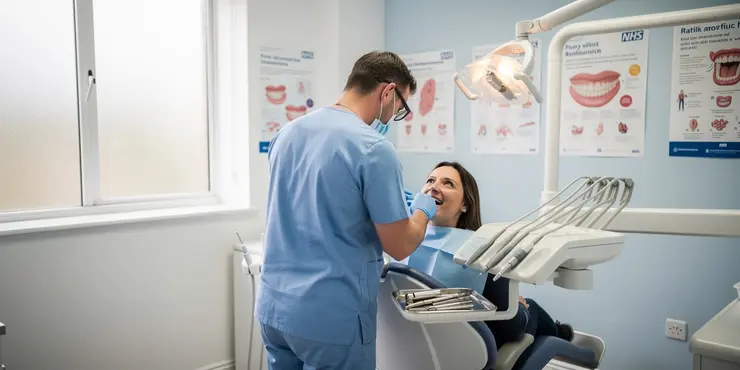
What treatments are covered by the NHS dental service?
Relevance: 58%
-
Are there waiting lists for NHS dental treatment?
Relevance: 54%
-
What if I'm not satisfied with my NHS dental treatment?
Relevance: 52%
-
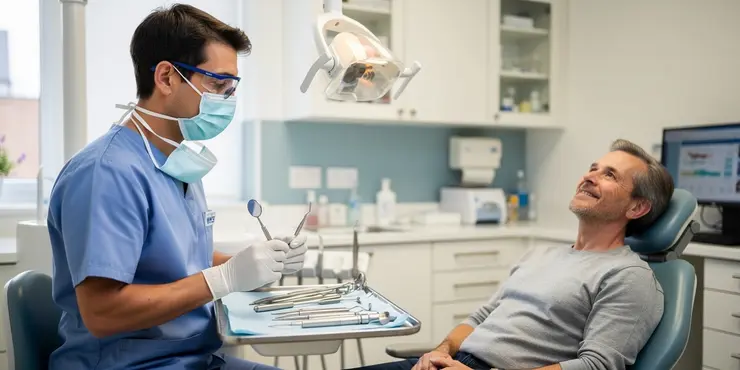
Are there any extra charges for NHS dental treatments?
Relevance: 52%
-
What treatments are covered by the NHS dental services?
Relevance: 52%
-
Can I get cosmetic dental treatment on the NHS?
Relevance: 52%
-
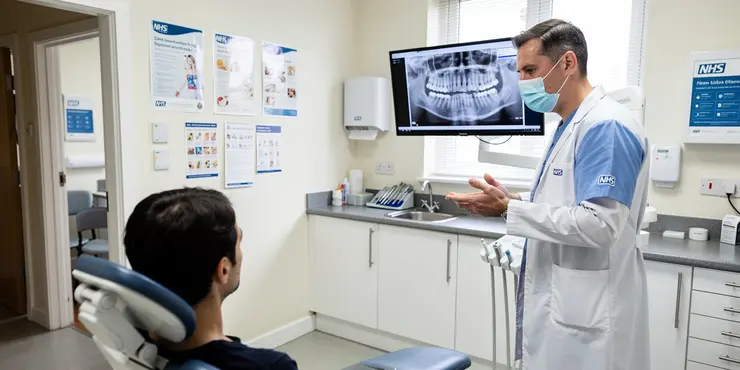
Will Brexit affect my access to NHS dental treatments?
Relevance: 51%
-
How much will I have to pay for NHS dental treatment?
Relevance: 50%
-
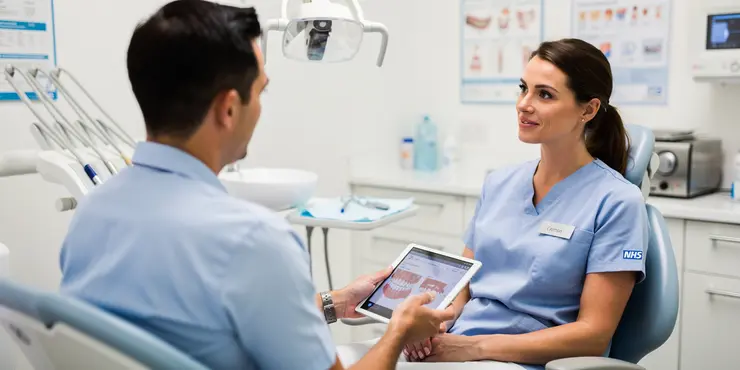
NHS Dental Charges Explained
Relevance: 43%
-
Are NHS dental charges different across the UK?
Relevance: 41%
-
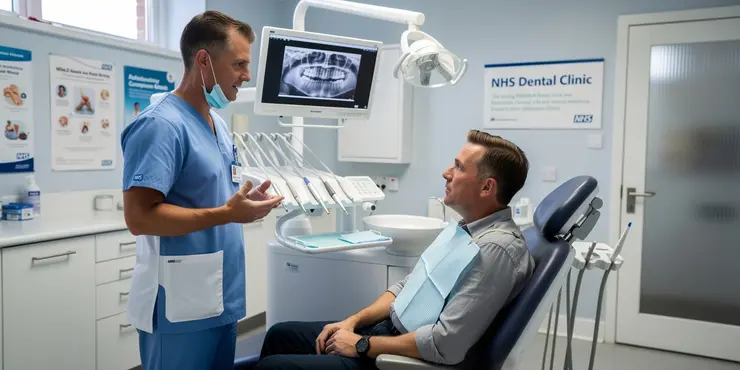
Are all dental appointments free on the NHS?
Relevance: 41%
-
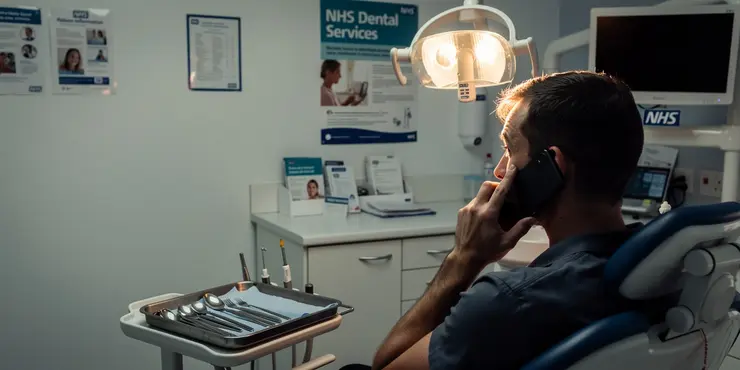
Can I get an emergency NHS dental appointment?
Relevance: 39%
-
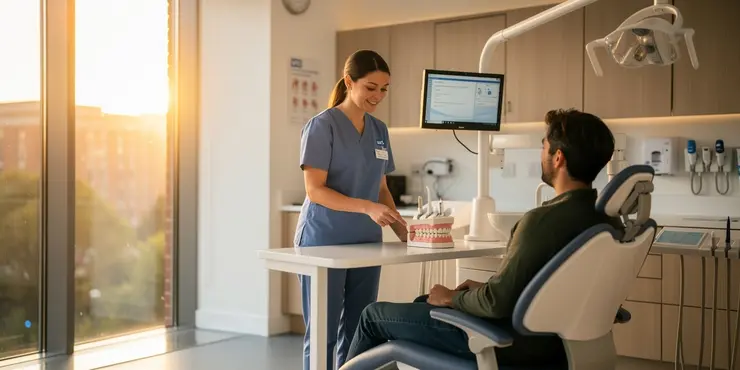
Can I get dental implants on the NHS?
Relevance: 39%
-
Is it safe to get dental work done in Turkey?
Relevance: 39%
-
How do I choose the right dental clinic in Turkey?
Relevance: 39%
-
Can children get free NHS dental care?
Relevance: 38%
-
Can I use private dental services if I'm on the NHS list?
Relevance: 38%
-
What if I need urgent dental care?
Relevance: 38%
-
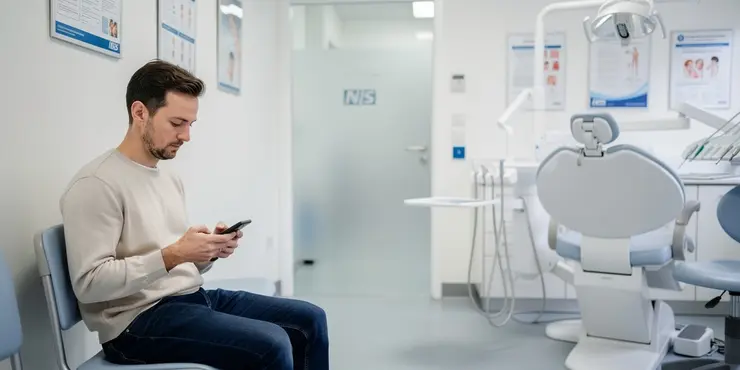
How long will I have to wait for an NHS dental appointment?
Relevance: 37%
-

What happens if I miss my NHS dental appointment?
Relevance: 37%
-
Do I need to be a registered patient to get emergency NHS dental care?
Relevance: 37%
-
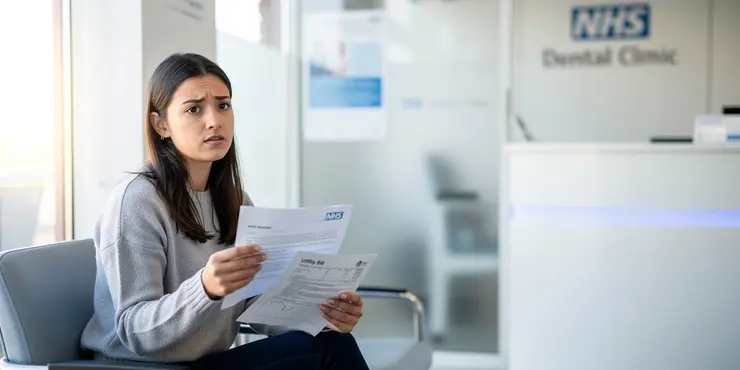
What should I bring to my NHS dental appointment?
Relevance: 37%
-
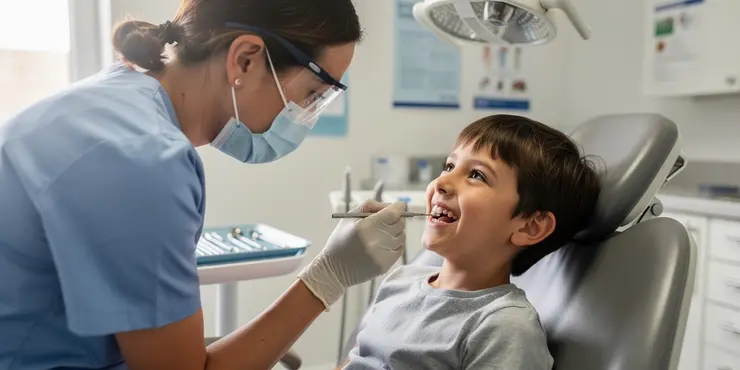
What is the role of dental sealants in preventing tooth decay?
Relevance: 37%
-
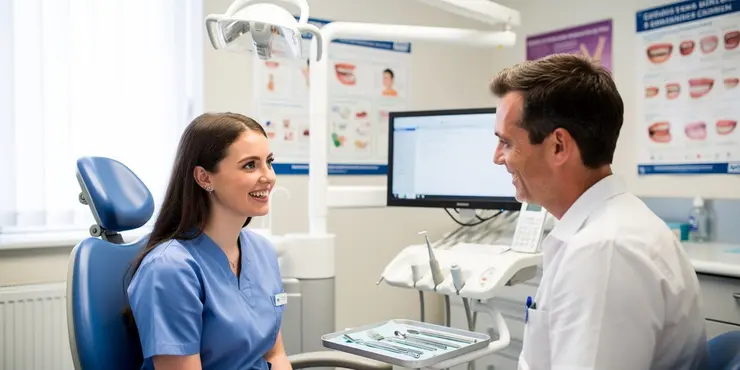
How do I know if I'm eligible for free NHS dental care?
Relevance: 36%
-
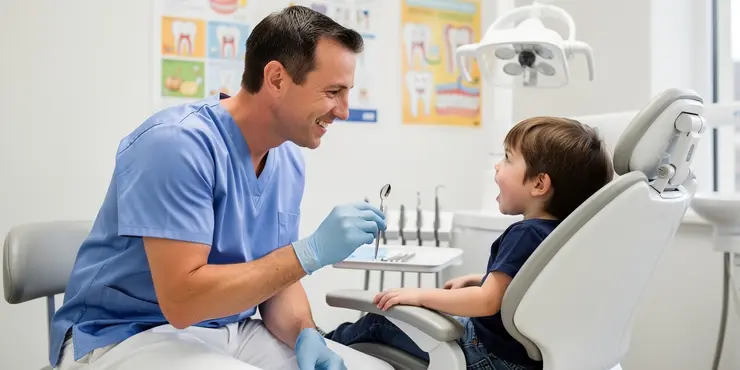
Dental Health: Tips for All Ages
Relevance: 36%
-
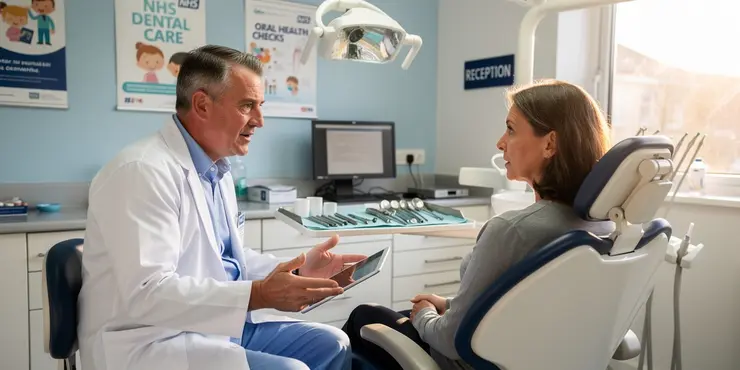
Do NHS dentists cover cosmetic treatments?
Relevance: 36%
-
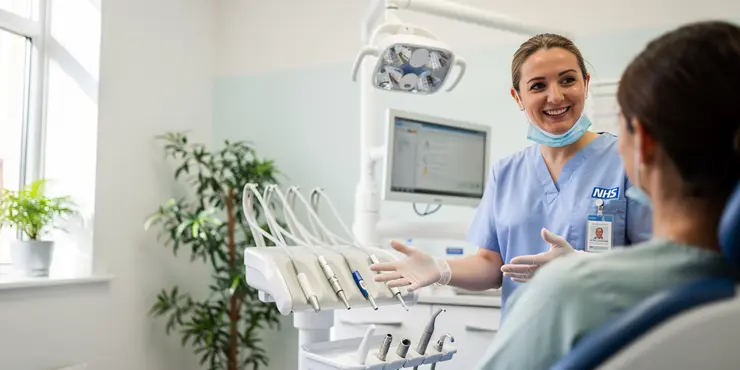
How often should I have a dental check-up on the NHS?
Relevance: 36%
-
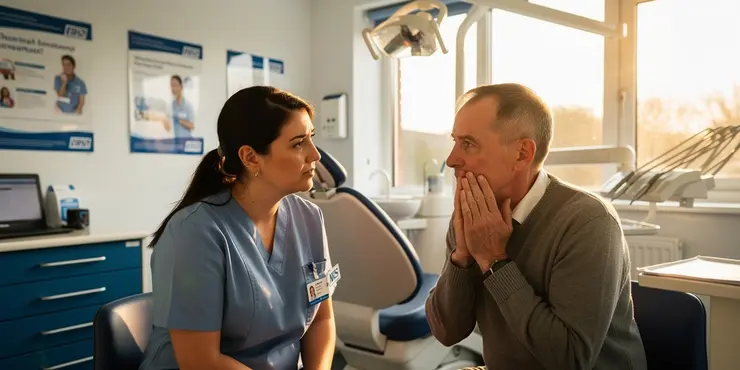
NHS 24 | How to get help for dental pain
Relevance: 34%
-
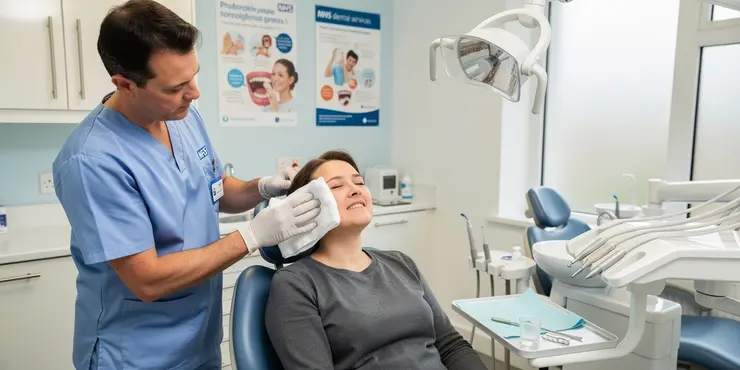
NHS 24 | Self-help tips for dental pain
Relevance: 34%
-
What languages do NHS dental clinics typically support?
Relevance: 34%
-
How do I know if my dentist offers NHS treatment?
Relevance: 33%
-
Can I get Turkey Teeth if I have existing dental issues?
Relevance: 33%
-
How can I provide feedback about my NHS dental care?
Relevance: 31%
-
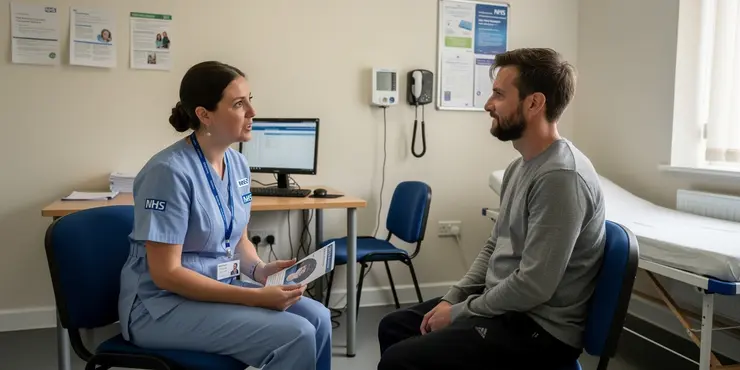
Is CPAP the only treatment for sleep apnea?
Relevance: 31%
-
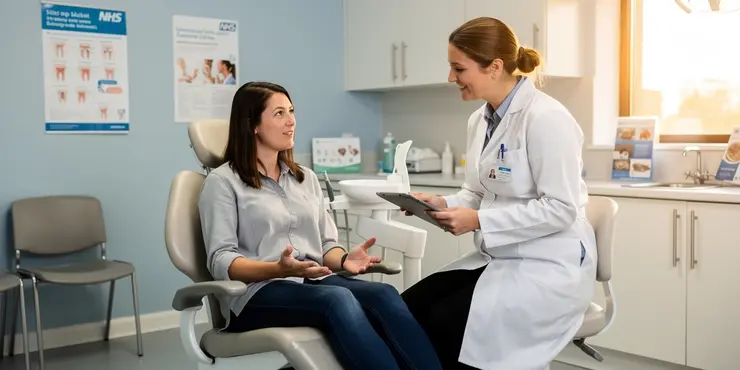
Can I get a dentist appointment on the NHS?
Relevance: 29%
-

What should I expect during IVF treatment?
Relevance: 27%
-
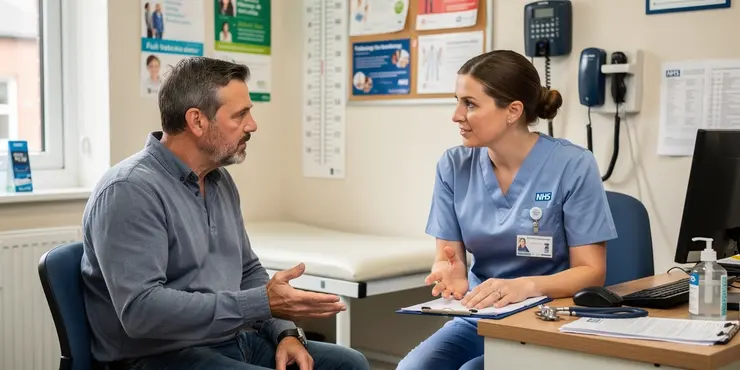
Do I need a referral to receive medical treatment in the EU?
Relevance: 23%
-
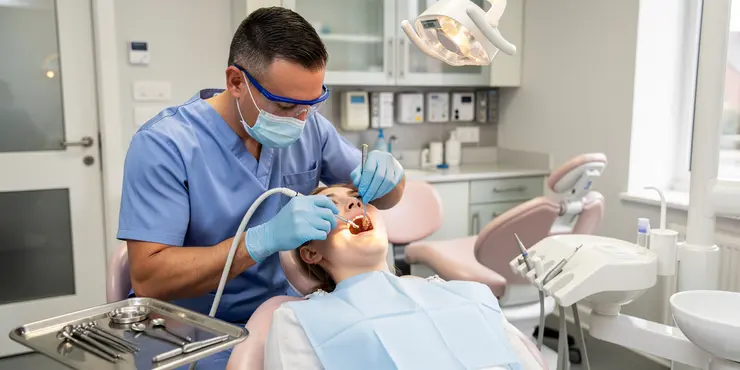
What treatments are available for tooth decay?
Relevance: 23%
-
Will my insurance cover Turkey Teeth?
Relevance: 23%
Understanding Sedation in NHS Dental Treatments
For many individuals, dental visits can evoke anxiety or fear, which may deter them from seeking necessary oral care. To address this issue, sedation options are offered during NHS dental treatments, ensuring patients have a more comfortable and stress-free experience.
What is Dental Sedation?
Dental sedation involves the use of medication to help patients relax during dental procedures. It is not the same as general anesthesia, as the patient remains conscious and responsive, except in cases requiring deeper sedation. The level of sedation can vary from minimal, where the patient is relaxed but fully awake, to moderate, where the patient might slur their words and not remember much of the procedure.
Types of Sedation Available
The NHS provides several types of sedation to accommodate different needs and levels of anxiety:
1. Inhalation Sedation: Often referred to as "laughing gas," inhalation sedation uses a mix of nitrous oxide and oxygen. Administered via a small mask, it helps patients relax without putting them to sleep. It is particularly popular for patients who have mild to moderate anxiety and is suitable for both adults and children.
2. Oral Sedation: This involves taking a sedative pill, such as diazepam, prior to the appointment. Oral sedation results in a moderate level of sedation and is recommended for patients with more pronounced dental anxiety or those undergoing lengthy procedures.
3. Intravenous (IV) Sedation: Administered through an injection, IV sedation works quickly and allows levels to be adjusted during the procedure. This type of sedation is often reserved for those with severe anxiety or when complex, lengthy treatments are required. Patients will feel deeply relaxed and may not recall much of the procedure.
Eligibility for NHS Sedation
Not every patient may be eligible for sedation through the NHS. Typically, NHS sedation is reserved for those who have been determined to have significant dental anxiety, special health care needs, or are undergoing particularly complex or invasive procedures. Dentists will assess a patient’s suitability for sedation based on their medical history, level of anxiety, and specific treatment requirements. In some cases, a referral to a specialised clinic may be necessary.
How to Access Sedation
If you think you might benefit from sedation during your dental treatment, it’s important to discuss this with your NHS dentist. They will evaluate your situation, discuss the different sedation options available, and determine the most appropriate plan for your needs. It's also essential to discuss any concerns or questions with your dentist to ensure a fully informed decision.
Conclusion
For many people, sedation offers a pathway to overcome fear and receive necessary dental care in a comfortable environment. The NHS provides various sedation options aimed at minimizing anxiety and enhancing the dental experience. By consulting with your dentist, you can better understand the options available and ensure that your dental visits are as stress-free as possible.
Understanding Sedation in NHS Dental Treatments
Some people feel scared or worried about going to the dentist. This can stop them from getting the care they need for their teeth. To help with this, the NHS offers sedation during dental treatments. This makes visiting the dentist more comfortable and less stressful.
What is Dental Sedation?
Dental sedation means using medicine to help people relax during dental work. It is not the same as being put to sleep with general anesthesia. Instead, the person stays awake and can respond, unless they need deeper sedation. There are different levels of sedation. It can be mild, where you are relaxed but awake, or moderate, where you might talk funny and not remember much.
Types of Sedation Available
The NHS has different types of sedation to help people with different needs and levels of worry:
1. Inhalation Sedation: This type is called "laughing gas." It uses a mix of nitrous oxide and oxygen. You breathe it in through a small mask. It helps you relax without going to sleep. It is good for people with mild to moderate anxiety, and it works for adults and children.
2. Oral Sedation: You take a pill, like diazepam, before your dental visit. This makes you feel moderately sedated. It's good for people who feel more anxious or have long procedures.
3. Intravenous (IV) Sedation: This is given through an injection. It works quickly and can be adjusted during treatment. It is used for people with severe anxiety or when the treatment is long or complex. You will feel very relaxed and might not remember much.
Eligibility for NHS Sedation
Not everyone can have sedation on the NHS. It is usually for people with high dental anxiety, special health needs, or those having complicated procedures. Dentists will look at your medical history and how anxious you are to decide if sedation is right for you. Sometimes, a special clinic might need to be involved.
How to Access Sedation
If you think sedation will help you during dental treatment, talk to your NHS dentist. They will look at your situation, explain the sedation options, and choose the best plan for you. Make sure to ask any questions you have and talk about your worries with your dentist to make a good decision.
Conclusion
For many people, sedation helps them get over their fear and get the dental care they need comfortably. The NHS offers different sedation options to make visiting the dentist less scary. By talking to your dentist, you can learn about your options and make dental visits as easy as possible.
Frequently Asked Questions
Is sedation available during NHS dental treatments?
Yes, sedation can be available for certain NHS dental treatments, depending on the patient's needs and the complexity of the procedure.
What types of sedation are offered for NHS dental treatments?
The common types of sedation offered include inhalation sedation (such as nitrous oxide), oral sedation, and intravenous (IV) sedation.
Who qualifies for sedation during NHS dental treatments?
Sedation is typically offered to patients who experience anxiety, have a strong gag reflex, or are undergoing complex or lengthy procedures.
Is there an additional cost for sedation in NHS dental treatments?
Sedation may be covered by the NHS if it is deemed clinically necessary, but it's important to discuss this with your dentist.
How can I request sedation for my NHS dental treatment?
You should discuss your concerns and the possibility of sedation with your NHS dentist to determine the best course of action.
Is sedation safe during dental treatments?
Sedation is generally safe when administered by trained professionals, and your dentist will take precautions to ensure your safety.
Can children receive sedation during NHS dental treatments?
Yes, children can receive sedation if it is deemed necessary by the dentist for certain procedures.
What should I expect during a dental procedure with sedation?
Under sedation, you will feel relaxed and less aware, but you will still be responsive to the dentist's instructions.
Will I feel any pain during sedation?
Sedation helps to reduce anxiety, and local anesthesia is also used to minimize pain during the procedure.
How long does the effect of dental sedation last?
The effects of sedation can last several hours depending on the type used, and you will need someone to accompany you home.
Do I need to prepare in advance for sedation during dental treatments?
Your dentist will provide specific instructions, which may include fasting for a certain period before the procedure.
Can I drive myself home after receiving dental sedation?
No, it's not recommended to drive after sedation as your reflexes and judgment may be impaired.
What are the risks associated with dental sedation?
While risks are minimal, possible side effects include dizziness, nausea, and prolonged drowsiness.
Is general anesthesia available for NHS dental treatments?
General anesthesia is not commonly available in dental practices and is usually reserved for hospital settings.
How do dentists determine the appropriate level of sedation?
The level of sedation is determined based on the patient's anxiety level, medical history, and the procedure's complexity.
Can I eat before my dental sedation appointment?
You may be instructed to avoid eating or drinking for a set period before your appointment based on the type of sedation.
How is intravenous sedation administered?
IV sedation is administered through a vein in your arm or hand, providing a deeper level of sedation quickly.
Are there alternatives to sedation if I am anxious about dental treatments?
Yes, alternatives include behavioral techniques, local anesthesia, or distraction methods which can be discussed with your dentist.
What should I do if I have concerns about sedation effects?
Express any concerns with your dentist beforehand so they can address them and offer reassurance.
Does what I wear to my sedation appointment matter?
Wear comfortable clothing to your appointment, and avoid wearing contact lenses as sedation can cause dryness in the eyes.
Can you get medicine to make you calm during NHS dentist visits?
Yes, you can get medicine to help you relax for some NHS teeth treatments. This happens if you need it and the dental work is tricky.
What kinds of calming help are there for NHS dentist visits?
When you go to the dentist, sometimes they give you medicine to help you feel calm and relaxed.
This medicine is called sedation. It helps to make you feel sleepy so you don’t feel scared.
The NHS can give you these calming medicines in different ways:
- Gas and Air: You breathe in a special gas that helps you feel calm.
- Tablets: You can take a pill before your visit to make you feel relaxed.
- Injection: The dentist can give you a small injection to help you feel sleepy.
If you feel worried about going to the dentist, you can talk to them. They will help you find the best way to stay calm.
You can also bring your favorite toy or music to help you feel safe and comfortable.
There are different ways to help you relax during medical procedures. These include:
- Breathing a special gas like laughing gas (called nitrous oxide).
- Taking a calming pill that you swallow.
- Getting medicine through a small tube in your arm (called IV sedation).
You can use tools like breathing exercises or listen to music to help you stay calm. Always talk to your doctor about what is best for you.
Who can have calming medicine at the dentist?
You might be able to get calming medicine if you're nervous about going to the dentist. Ask your dentist to see if you can use it.
If you're worried, try tools like listening to music or breathing exercises to help you relax.
Doctors can give medicine to help you relax if you are scared, might gag, or need a long or tricky treatment.
Do you have to pay more for sedation at the dentist on the NHS?
If your dentist says you need sedation to help with your dental treatment, the NHS might pay for it. Talk to your dentist about this. They can help you understand if you can have sedation and if the NHS will cover the cost.
How can I ask for medicine to help me relax during my NHS dentist visit?
Do you feel nervous or scared about going to the dentist? You can ask the dentist for special medicine to help you feel calm.
Here is how:
- When you call to make your dentist appointment, tell them you feel nervous.
- Ask if you can have medicine to help you relax during the treatment. This is called "sedation."
- The dentist will tell you if they can give you this medicine.
Don't be afraid to talk to your dentist. They are there to help you feel safe and calm. You can bring a friend or family member with you to feel better too.
Talk to your NHS dentist about your worries. Ask about using sedation. Together, you can decide what is best.
Is it safe to sleep during dental treatments?
Going to the dentist can be scary. Sometimes, you can take medicine to feel relaxed or even sleep while the dentist works on your teeth. This is called sedation.
Is it safe to do this? Most of the time, yes! Dentists are trained to give this medicine safely. They will watch you closely to make sure you are okay.
Here are some tips to help you feel better:
- Talk to your dentist about any worries you have.
- Bring a trusted adult with you to the appointment.
- Ask questions until you feel ready.
If you need more help, you can use pictures or videos to understand what will happen. It's okay to feel a little nervous. Dentists are there to help you have a healthy smile.
Sedation is usually safe when given by trained experts. Your dentist will make sure you are safe.
Can children get medicine to help them relax at the dentist?
Yes, children can get special medicine to help them relax when they go to the dentist. This is called sedation. It helps them feel calm and not worried.
If you want to know more, you can:
- Talk to the dentist. They can explain how it works.
- Ask questions if you don't understand. It's okay to ask for help.
Yes, children can get medicine to help them feel calm if the dentist thinks it is needed for some treatments.
What will happen when I have a dental treatment with sedation?
When you go to the dentist and need sedation, it means you will get medicine to help you relax and not feel pain.
Here's what you can expect:
- You can feel sleepy but calm.
- The dentist will give you the medicine to help you relax.
- You may not remember much about the treatment afterward.
- The dentist will be extra careful to keep you safe.
Tool that can help:
- Take deep breaths to feel calmer.
- Listen to music if it helps you relax.
- Ask the dentist any questions if you are unsure or worried.
When you get medicine to help you relax at the dentist, you will feel calm. You might not notice everything, but you can still listen and do what the dentist asks you to do.
Will it hurt when I am sedated?
Sedation helps you feel less worried. Local anesthesia is also used to make sure you don't feel pain during the procedure.
How long does dental sleep medicine work?
After you have medicine to help you feel sleepy, it can last for a few hours. You will need a friend or family member to go home with you.
Do I need to get ready before sedation at the dentist?
Your dentist will tell you exactly what to do. They might say not to eat or drink anything for some time before your appointment.
Can I drive myself home after I get sleepy medicine at the dentist?
When you visit the dentist and get sleepy medicine, it’s important to stay safe. The dentist gives you medicine to help you feel calm and sleepy. After you get this medicine, you might feel tired and dizzy.
Ask for help: It’s a good idea to ask a friend or family member to drive you home. This keeps you safe because you might be too sleepy to drive.
Tools to help: You can use reminders on your phone or a note to help you remember to ask someone to come with you to the dentist.
No, you should not drive after having sedation. It can make it hard for you to think clearly and react quickly. This can be dangerous when driving.
What are the risks of using medicine to relax at the dentist?
There is a small chance of feeling dizzy, feeling sick, or being sleepy for a long time. Don't worry, these usually go away. If you feel like this, sit down and rest.
Can I get general anesthesia for dentist treatments on the NHS?
When you go to the dentist, sometimes they need to do something that might hurt. To stop the pain, dentists can give you medicine called anesthesia.
General anesthesia makes you sleep deeply so you don’t feel anything. But this is only for big hospital surgeries, not at the dentist's office.
For most dentist treatments, you can have other things that help, like:
- Local anesthesia: This is medicine that numbs just the part that needs fixing, so you don’t feel pain there.
- Sedation: This makes you feel calm and a bit sleepy, but you stay awake.
If you are afraid of dental treatments, you can:
- Talk to the dentist about your fears.
- Bring a friend to stay with you.
- Listen to music or hold a favorite toy during the treatment.
Most dentists don't use sleep medicine that makes you fully asleep. This is called general anesthesia. You usually get this in a hospital, not at the dentist's office.
How do dentists decide how much sedation you need?
Dentists help you feel calm during treatment by using sedation. Sedation is medicine that helps you relax.
To decide how much you need, dentists think about:
- Your age and size
- Your health
- How nervous you feel
- The kind of treatment you will have
If you are not sure, ask your dentist. They can explain things in a way you understand.
You can also bring a friend or family member for support. Listening to calming music can help too.
The amount of sleep medicine a patient gets depends on how scared they feel, their health, and how tricky the doctor's job is.
Can I eat before my dentist appointment where I will be sleepy?
You might be told not to eat or drink for some time before your visit. This depends on the kind of sedation you will get.
How do doctors give medicine through a needle?
Doctors give IV sedation through a vein in your arm or hand. It helps you relax very quickly.
Can I try other things instead of medicine to calm down for dentist visits?
Yes, there are other ways to help, like using special methods to stay calm, numbing your mouth, or doing something fun to keep your mind busy. You can talk about these with your dentist.
What to Do If You Are Worried About Sedation
If you feel worried about how sedation makes you feel, talk to your doctor or nurse.
They can help you understand what to expect.
You can also ask a friend or family member to help ask questions.
Remember, it is okay to ask for help.
Before you go to the dentist, tell them if you are worried about anything. They will help you feel better and answer your questions.
Is it important what clothes I wear to my sedation appointment?
Wear clothes that feel comfy to your appointment. Don't wear contact lenses because the medicine might make your eyes dry.
Useful Links
This website offers general information and is not a substitute for professional advice.
Always seek guidance from qualified professionals.
If you have any medical concerns or need urgent help, contact a healthcare professional or emergency services immediately.
Some of this content was generated with AI assistance. We’ve done our best to keep it accurate, helpful, and human-friendly.
- Ergsy carfully checks the information in the videos we provide here.
- Videos shown by Youtube after a video has completed, have NOT been reviewed by ERGSY.
- To view, click the arrow in centre of video.
- Most of the videos you find here will have subtitles and/or closed captions available.
- You may need to turn these on, and choose your preferred language.
- Go to the video you'd like to watch.
- If closed captions (CC) are available, settings will be visible on the bottom right of the video player.
- To turn on Captions, click settings .
- To turn off Captions, click settings again.
More Items From Ergsy search
-

Is sedation available during NHS dental treatments?
Relevance: 100%
-

What treatments are covered by the NHS dental service?
Relevance: 58%
-
Are there waiting lists for NHS dental treatment?
Relevance: 54%
-
What if I'm not satisfied with my NHS dental treatment?
Relevance: 52%
-

Are there any extra charges for NHS dental treatments?
Relevance: 52%
-
What treatments are covered by the NHS dental services?
Relevance: 52%
-
Can I get cosmetic dental treatment on the NHS?
Relevance: 52%
-

Will Brexit affect my access to NHS dental treatments?
Relevance: 51%
-
How much will I have to pay for NHS dental treatment?
Relevance: 50%
-

NHS Dental Charges Explained
Relevance: 43%
-
Are NHS dental charges different across the UK?
Relevance: 41%
-

Are all dental appointments free on the NHS?
Relevance: 41%
-

Can I get an emergency NHS dental appointment?
Relevance: 39%
-

Can I get dental implants on the NHS?
Relevance: 39%
-
Is it safe to get dental work done in Turkey?
Relevance: 39%
-
How do I choose the right dental clinic in Turkey?
Relevance: 39%
-
Can children get free NHS dental care?
Relevance: 38%
-
Can I use private dental services if I'm on the NHS list?
Relevance: 38%
-
What if I need urgent dental care?
Relevance: 38%
-

How long will I have to wait for an NHS dental appointment?
Relevance: 37%
-

What happens if I miss my NHS dental appointment?
Relevance: 37%
-
Do I need to be a registered patient to get emergency NHS dental care?
Relevance: 37%
-

What should I bring to my NHS dental appointment?
Relevance: 37%
-

What is the role of dental sealants in preventing tooth decay?
Relevance: 37%
-

How do I know if I'm eligible for free NHS dental care?
Relevance: 36%
-

Dental Health: Tips for All Ages
Relevance: 36%
-

Do NHS dentists cover cosmetic treatments?
Relevance: 36%
-

How often should I have a dental check-up on the NHS?
Relevance: 36%
-

NHS 24 | How to get help for dental pain
Relevance: 34%
-

NHS 24 | Self-help tips for dental pain
Relevance: 34%
-
What languages do NHS dental clinics typically support?
Relevance: 34%
-
How do I know if my dentist offers NHS treatment?
Relevance: 33%
-
Can I get Turkey Teeth if I have existing dental issues?
Relevance: 33%
-
How can I provide feedback about my NHS dental care?
Relevance: 31%
-

Is CPAP the only treatment for sleep apnea?
Relevance: 31%
-

Can I get a dentist appointment on the NHS?
Relevance: 29%
-

What should I expect during IVF treatment?
Relevance: 27%
-

Do I need a referral to receive medical treatment in the EU?
Relevance: 23%
-

What treatments are available for tooth decay?
Relevance: 23%
-
Will my insurance cover Turkey Teeth?
Relevance: 23%


